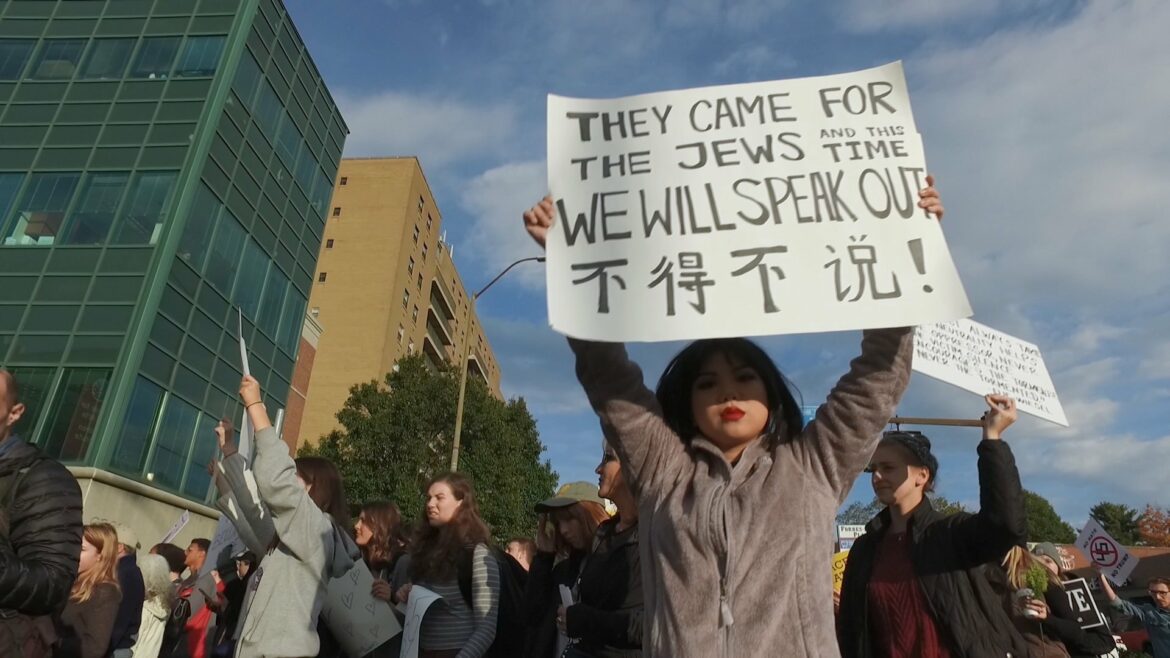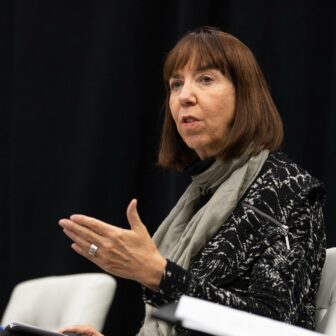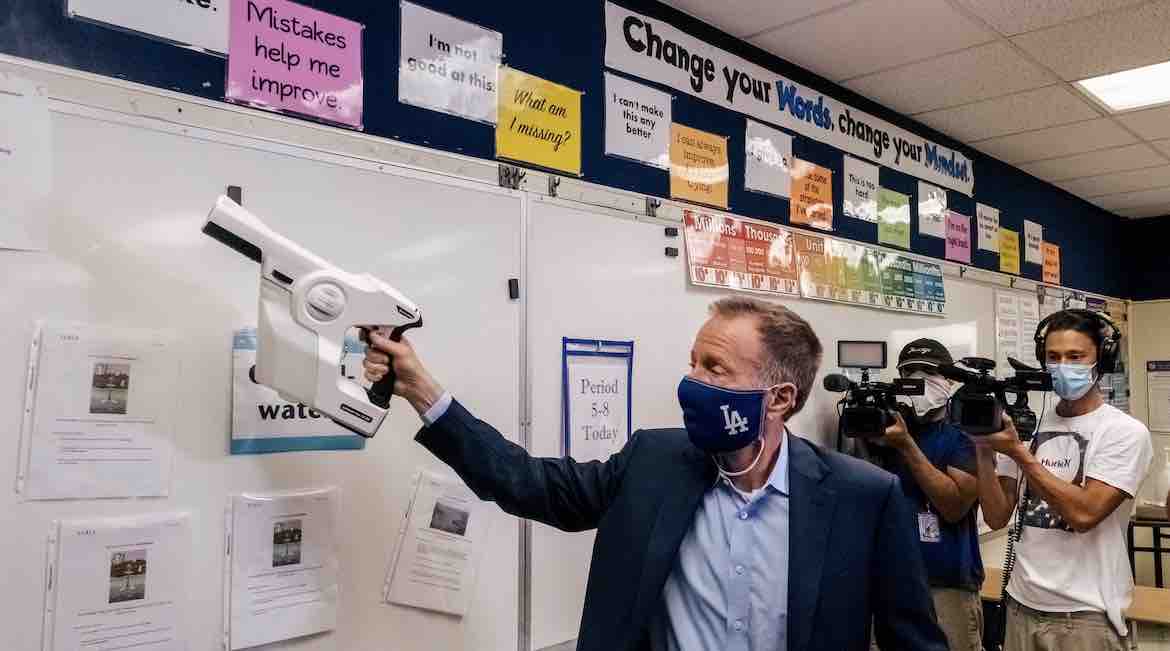Not in Our Town film highlights power of Pittsburgh’s response to 2018 shooting

Ryan Loew / Not in Our Town
A new documentary detailing the aftermath of the 2018 mass shooting in a Pittsburgh synagogue, Repairing the World: Stories from the Tree of Life, aims to spark conversations and community actions to counter hate and bigotry throughout the country.
Pittsburgh’s WQED hosted a community screening and panel discussion Tuesday and is presenting the film for national broadcast via American Public Television. Not in Our Town, an antihate campaign led by the Working Group of Oakland, Calif., produced the documentary. Its public TV premiere is timed to coincide with the five-year anniversary of the attack.
Repairing the World documents the community response to the deadliest antisemitic attack in U.S. history on Oct. 27, 2018, when 11 people were killed at Pittsburgh’s Tree of Life synagogue. Filmmakers set out to highlight the sense of unity that emerged after the shooting as survivors, family members, civic leaders and other community members grappled with trauma and rising levels of hate throughout the country.
“As journalist A.C. Thompson says in the film, when the horrific attack in Pittsburgh happened, it was horrifying, but it wasn’t surprising,” said Patrice O’Neill, EP of the documentary and founder of the Not in Our Town movement. “Our entry point into the film was not just because it was horrible, but because of the response in the community.”
“The narrative is really about what communities can do,” O’Neill said. “There are endless possibilities to do stories about the danger of hate, about perpetrators, about what we’re facing, about the threat to democracy. … What is rare and what we try to focus on is, what can people do about it and where are examples of that?”
Not in Our Town produces media and provides organizing resources to respond to hateful speech and incidents of violence in ways that build safe and inclusive communities. It has a long track record of documenting stories of citizen action in response to hate crimes. Its first and eponymous film, broadcast nationally in 1995 on PBS, told the story of how residents of Billings, Mont., took action following a series of hate crimes in their town. Not in Our Town and the Working Group went on to produce a PBS series and collaborate with stations on community engagement and outreach campaigns.
APT released Repairing the World for public TV broadcasts Oct. 2. The film will premiere on WQED Oct. 26. Approximately 85% of public stations across the country will air it the week of the anniversary, according to O’Neill.
“Anyone can cover a tragic event that’s full of sadness, heartbreak, but in this film, Patrice [O’Neill] focused … on how a community can come together despite the tragic elements … to speak out and to fight against hate,” said David Solomon, managing director of production and TV station manager at WQED. “That’s a different spin than I’ve seen in the coverage of this synagogue shooting to date.”
After the shooting in 2018, WQED recorded a memorial concert performance by the Pittsburgh Symphony Orchestra that honored victims of the attack, Solomon said. That special was distributed nationally by PBS. With Repairing the World, Solomon saw an opportunity for WQED to add a new perspective to coverage of the attack.
“The synagogue shooting happened maybe a mile from where I’m sitting right now at WQED,” Solomon said. “So for us it was a given that we wanted to be involved” and offer the independent film for national distribution.
Engagement campaign already underway
In addition to covering Pittsburgh’s response to the Tree of Life shooting, Repairing the World explores issues of antisemitism, right-wing ideology and hate in a broader context, highlighting how these beliefs perpetuate gun violence and connecting them to tragedies that have occurred in other communities.
O’Neill’s goal is to encourage stations to join other organizations in hosting discussions about these issues, she said. She pointed to a screening of the film co-hosted by the United States Attorney’s Office, WHYY and six Jewish organizations in Philadelphia as an example of the conversations and events she hopes the film will spark.
Not in Our Town has offered Repairing the World to civic and faith leaders, schools, national organizations, government agencies and others free of charge through an engagement campaign that supports public screenings and discussions, town hall meetings and other events.

Different communities have already begun creating dialogues around the film, O’Neill said, and she’s excited by the responses so far. After attending a summit where local youth watched and discussed the film, students from a Pennsylvania high school started an “eradicate hate” club and planned a year of activities, according to the Pittsburgh Post-Gazette.
“You don’t have to necessarily revise the First Amendment in any way to change social norms in your community and how you interact, how you respond to bigoted speech in schools, workplaces and communities,” O’Neill said. “We saw that happen in the film, in Pittsburgh, where people were trying to grapple with this rising problem.”
Though Repairing the World focuses on a specific tragic event, O’Neill said, the story that it documents is applicable in many different contexts.
“I think the story of what people did to respond is timeless,” she said. “There are important lessons and ways of seeing how to respond that will last for a long time, so we look forward to seeing what happens in the long run.”






